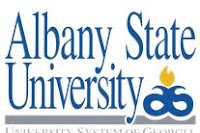President Art Dunning
Albany State University
By Art Dunning
An
undeniable connection exists between Southwest Georgia’s economic
development and institutions of higher learning. Colleges and
universities impact the wealth and resources of communities in many ways
and that’s true for Albany State University and Darton State College.
In about a year, it will also be true for the consolidated university.
For our regional economy to prosper,
the new university must work strategically to support economic
development by focusing on what we do well—provide technical assistance,
promote global reach, create a quality workforce, transfer expert
business knowledge and advance innovation and creativity.
Through innovative research, colleges
and universities provide the technical assistance needed to cure
illnesses, develop innovative technologies and find solutions to
everyday problems globally; we know this model to be applied research.
Albany State University researchers Dr. Seong Seo, Dr. Byung-Hoon Kim,
Dr. Yong J. Lee, and Dr. Shayla Williams, in the department of Natural
and Forensic Sciences, are recipients of a $1.1 million grant from the
U.S. Department of Defense to protect public health and U.S. military
troops against the threat of bioterrorism. This is one of several
research grants, which allow us to transfer the knowledge that is
learned in the classroom and, through research, to address needs
globally.
To effectively serve our community, we
must take advantage of our international reach, which allows the
university to help the region compete globally. ASU has established
relationships with international partner universities in China, Ghana,
Nigeria, Belize and Trinidad and Tobago. We’re not alone, and not
unique, in realizing the importance of thinking globally.
I am reminded of my trip to the cities
of Recife and Petrolina in the state of Pernambuco in northeastern
Brazil. I was part of a Georgia delegation that participated in a
partnership, which provides credence to the applied research model. The
Georgia-Pernambuco Partnership united the state of Georgia with
Pernambuco to advance research collaborations, facilitate faculty
exchange and present additional opportunities for student success via
unique recruitment strategies. That partnership has been successful
because the agricultural community, businessmen and members of the
academy understood that knowledge transfer was and remains a necessary
element of economic vitality.
Such partnerships should demonstrate
that the primary influence in regional economic development is educating
a quality workforce to enhance the local job market. That’s why
employing expert instructors is important. Darton State College’s Dr.
Sarah Kuck is an example of faculty who are helping to move us forward.
Dr. Kuck was recently named the recipient of the 2016 Regents’ Teaching
Excellence Award for online teaching for the University System of
Georgia.
Preparing individuals to be workforce
leaders is something we do consistently well in Southwest Georgia. The
number of graduates from our local institutions who serve in leadership
positions in the public and private sectors is evidence. Consider the
elected head of the City of Albany, Mayor Dorothy Hubbard, who is a
proud ASU graduate.
A university, through its faculty,
staff and students, is uniquely positioned to support economic
development through the transfer of knowledge. At Albany State
University, specialized centers like the Georgia Water Planning and
Policy Center and the Center for Advanced Logistics Management serve as
resources to the community by conducting research, offering consultant
services and providing interns. Forums and network opportunities with
business representatives and industry leaders to advance community
development initiatives are made available through the centers.
Colleges and universities are hubs for
creativity and innovation. On Tuesday, ASU will break ground on a
state-of-the-art Fine Arts Center. The new center will continue to
develop student talent and creativity, and it will be available to the
community to serve as a source of revenue for the area through
productions and events. Creative industries in Georgia provide $29
billion in annual revenue, according to a 2015 report by Georgia Council
for the Arts and the Georgia Municipal Association.
As we, the residents of Southwest
Georgia, increase efforts to improve economic growth and stability for
the region, our educational entities are committed to supporting
economic development. Essentially, higher education institutions are in
the business of educating residents and supporting communities, and
that’s what matters most.


No comments:
Post a Comment